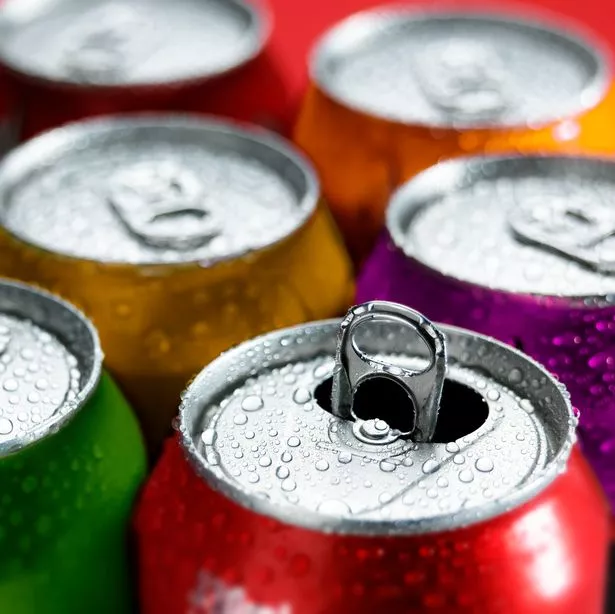


Scientists warn their research found it led to the aging of the brain by more than 1.5 years with under-60s and those with diabetes at greater risk
When it comes to losing weight one of the first steps many take is to ditch sugar, often switching to artificial sweeteners. However the “healthy” swap might be playing havoc with the brain, scientists have found.
Those using higher levels of artificial sweeteners – equivalent to drinking just one glass of diet soda a day – were left with an increased decline in their ability to remember and recall words compared with those who consumed the lowest amounts.
Researchers, using data from the Brazilian Longitudinal Study of Adult Health, tracked 12,772 adults over eight years. They discovered that those taking the higher amounts aged faster in cognitive terms by 1.6 years.
The scientists split the artificial sweetener intake into three levels averaging between 20 milligrams per day in the lowest group to 191 milligrams in the highest group. Sorbitol was the most common at 64 milligrams per day.
The report, published in Neurology, said participants were tested three times during follow-up. These tests included memory, verbal fluency, recall and processing speed.
When compared with the lowest group, the middle group declined 35 percent faster in overall cognition. Meanwhile, the highest group declined 62 percent faster.
Lead study author Dr. Claudia Kimie Suemoto, an associate professor of geriatrics and director of the Biobank for Aging Studies at the University of São Paulo’s Medical School in Brazil, said: “People who consumed the most low- or no-calorie sweeteners showed a 62% faster global cognitive decline than those who consumed the lowest amount — that’s the equivalent of 1.6 — years of brain aging.
“Participants in the middle tier had a 35% faster rate of global cognitive decline — which is about 1.3 years of aging — than people who consumed the lowest amount of these sweeteners. Now, the study is only observational — I cannot say to you that artificial sweeteners cause cognitive decline. We do know, however, that these sweeteners are associated with worse cognitive trajectories.”
Seven types of artificial sweeteners were included in the study. These were:
- aspartame
- saccharin
- acesulfame-K
- erythritol
- xylitol
- sorbitol
- and tagatose.
Six of these were linked with decline however tagatose, a sugar found naturally in dairy and fruit, showed no clear effect. The researchers noted that one can of diet soda contains roughly the same amount of sweeteners as those in the highest group.
Researchers found the effect was greater in those under 60. People with diabetes also had a stronger link.
Dr. Suemoto said. “People with diabetes are more likely to consume artificial sweeteners as a substitute for sugar, so their overall exposure may be higher than people without diabetes,” she says. “In addition, diabetes itself is already a strong risk factor for cognitive decline related to Alzheimer’s disease and vascular dementia, which probably makes the brain more vulnerable to harmful exposures.”
The researchers wrote in the conclusion that the findings “suggest the possibility of long-term harm” on cognitive function from using artificial sweeteners and sugar alcohols. However they said there were limitations in their study.
The intake was only measured at the start to changes over the course of the study were not tracked. Other limitations included a lack of brain imaging of biomarkers to confirm mechanisms.
Dr. Thomas Holland, an instructor in the department of internal medicine, a division of digestive diseases and nutrition at Rush University’s Institute for Healthy Aging in Chicago, said the findings would “hold particular relevance” for neurologists and health care professionals who manage patients with cerebrovascular disease and cognitive impairment.
Writing in an editorial published alongside the study he added: “The widespread assumption that LNCS (low- and no-calorie sweeteners) represent a safe sugar substitute may be misguided, especially given their ubiquity in products marketed as “healthier” alternatives.”
However, a body representing the sweeteners industry urged caution over the findings. It said: “While the study has garnered media attention, it is essential to place its results within the broader, established scientific consensus on sweeteners safety.”
It said the study was observational which “can only show a statistical association, not a direct cause-and-effect relationship”. It added: “The reported link between sweetener consumption and cognitive decline does not prove that one causes the other. As with all such research, the findings may be influenced by many confounding factors, including overall dietary patterns, lifestyle choices and other health conditions. The study’s own authors acknowledge this, cautioning against drawing causal conclusions.
“It is also important to note the study’s specific limitations. The results are inconsistent across different age groups and varied by diabetes status, which raises questions about biological plausibility. Also, the study relies on a self-reported method for dietary data collected only once at baseline 8 years ago, which is often inaccurate, can introduce significant bias, and does not consider changes in dietary habits and product formulations over time.
“Furthermore, all sweeteners were aggregated in a single value from both high-intensity sweeteners and polyols, while we know they all have very different properties and approved use levels. In practice, the “combined sweetener” intake was dominated by polyols that are used in higher quantities, while the intake of aspartame, acesulfame-K and saccharin was very low even for the high consumption group (at the order of 1-2% of the respective Acceptable Daily Intakes). These values suggest a limited and narrow range of exposure and a high likelihood of floor effects that can bias results. Floor effects are known to distort statistical models, leading potentially to false positives.
“The safety of low/no calorie sweeteners has been consistently confirmed by leading global health authorities. These include the European Food Safety Authority (EFSA), the US Food and Drug Administration (FDA), and the Joint Expert Committee on Food Additives (JECFA) of the World Health Organization (WHO) and the Food and Agriculture Organization (FAO). These organizations conduct comprehensive safety assessments based on the totality of scientific evidence, not just a single study.
“Sweeteners provide a safe and effective way to reduce sugar and calorie intake, a key public health goal for managing conditions such as obesity and type 2 diabetes. By offering a sweet taste without the calories, they help consumers adhere to dietary guidelines that recommend reducing free sugars.
“The ISA remains committed to providing science-based information on low/no calorie sweeteners. We advocate for a holistic view of the scientific evidence, which consistently demonstrates that approved sweeteners are a safe and useful tool for public health.”
Source link

اترك تعليقاً